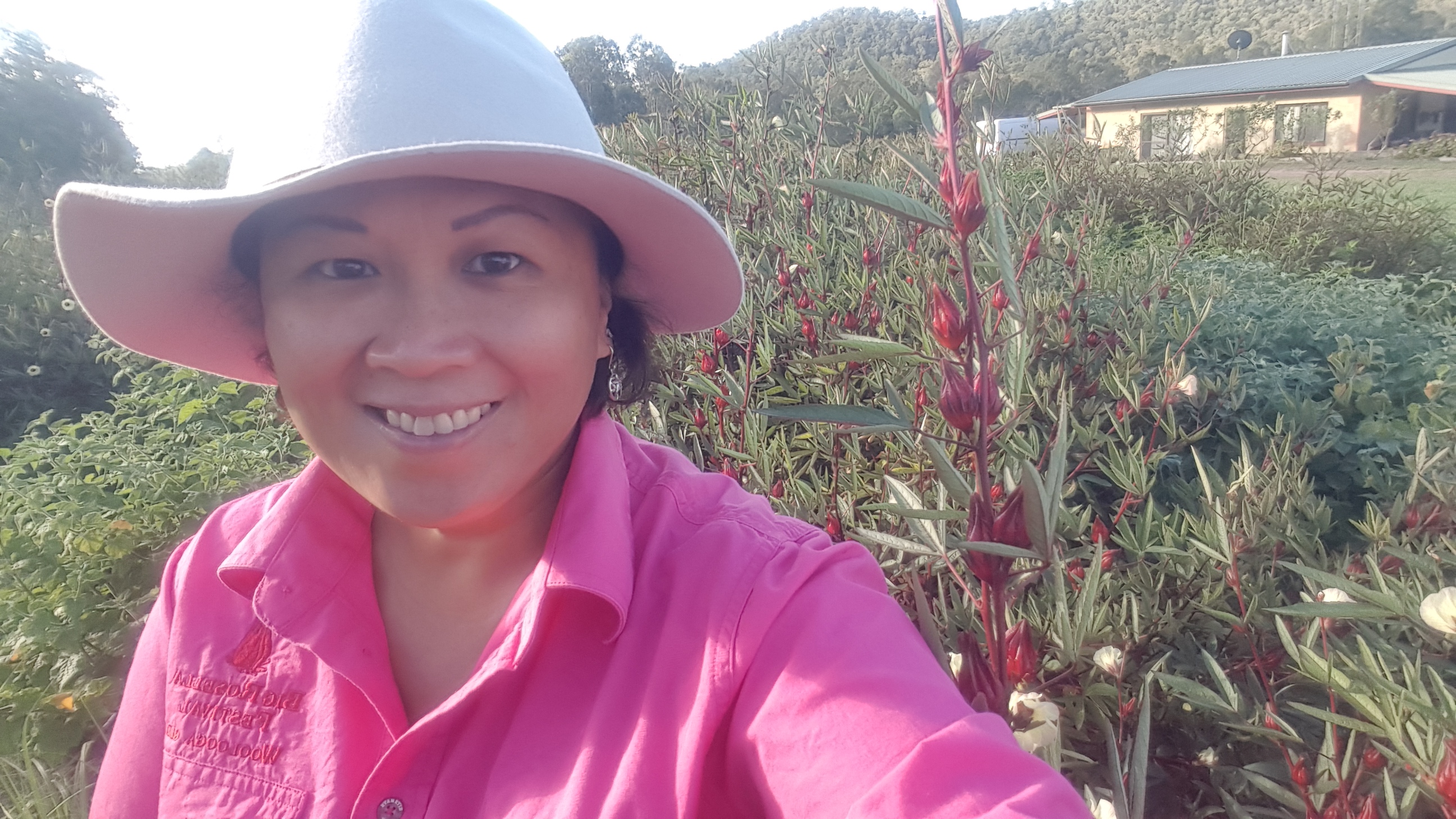CC’s Kitchen and Petersen’s Farm: Putting rosellas back on the table
Cecilia Diaz-Petersen – better known as CC – and her husband Greg are one of only a few commercial rosella growers in Australia. Not only does CC share partnership of the farming business, she’s also busy expanding own venture – CC’s Kitchen. CC speaks to Vegetables Australia about her passion for rosellas and educating consumers about where their food comes from, plus the opportunities that are being presented as a result of challenges experienced by both businesses.
Fast facts
Name: Cecilia Diaz-Petersen
Location: Woolooga, QLD
Works: CC’s Kitchen/Petersen’s Farm
Grows: Rosella, chilli, tomato, butter bean, okra, eggplant, zucchini, tomatillos, cape gooseberry, ginger, turmeric and beetroot.
Spending up to 70 hours a week cooking in a purposely built commercial kitchen in the farm, as well as helping to run a farm and juggle other business activities, may seem daunting to many people.
Add to this the location of the kitchen – over 200 kilometres north of Brisbane in a small town called (which is 45 kilometres north-west of Gympie, Queensland), where summer temperatures hover around the mid-30s during the day and humidity is relatively high – and the apprehension increases.
However, this routine is just part of everyday life for CC Diaz-Petersen. She produces up to 20,000 bottles a year from her wide range of jams, pickles and condiments.
“It’s crazy, but I just love cooking. I might be knackered at the end of the day, but I will do it again the next day,” CC says.
CC’s Kitchen is most famous for its products featuring the fruit, rosella. Also known as ‘wild hibiscus’, rosella is a blood-red fruit grown in northern Australia. It is an introduced species – the fruit originated from Africa before landing on our shores.
Rosella has been grown by CC’s husband Greg and his family for almost 40 years.
“Seven years ago, when I met my husband, I didn’t really know how to make rosella jam and he taught me how to, using his grandmother’s recipe,” CC explains. “Rosella jam brings a lot of childhood memories for a lot of people.”
Since introducing rosella into the CC’s Kitchen range where it contributes to 24 of 91 products, rosella production at Petersen Farm has skyrocketed. From growing 1,000 rosella bushes, the figure more than tripled to 3,500 bushes this year to keep up with demand.
Petersen Farm also provides other fresh produce for CC’s products, including chilli, tomato, butter bean, okra, eggplant, zucchini, tomatillos, cape gooseberry, ginger, turmeric and beetroot. CC is also passionate in minimising waste, utilising imperfect produce in making her products.
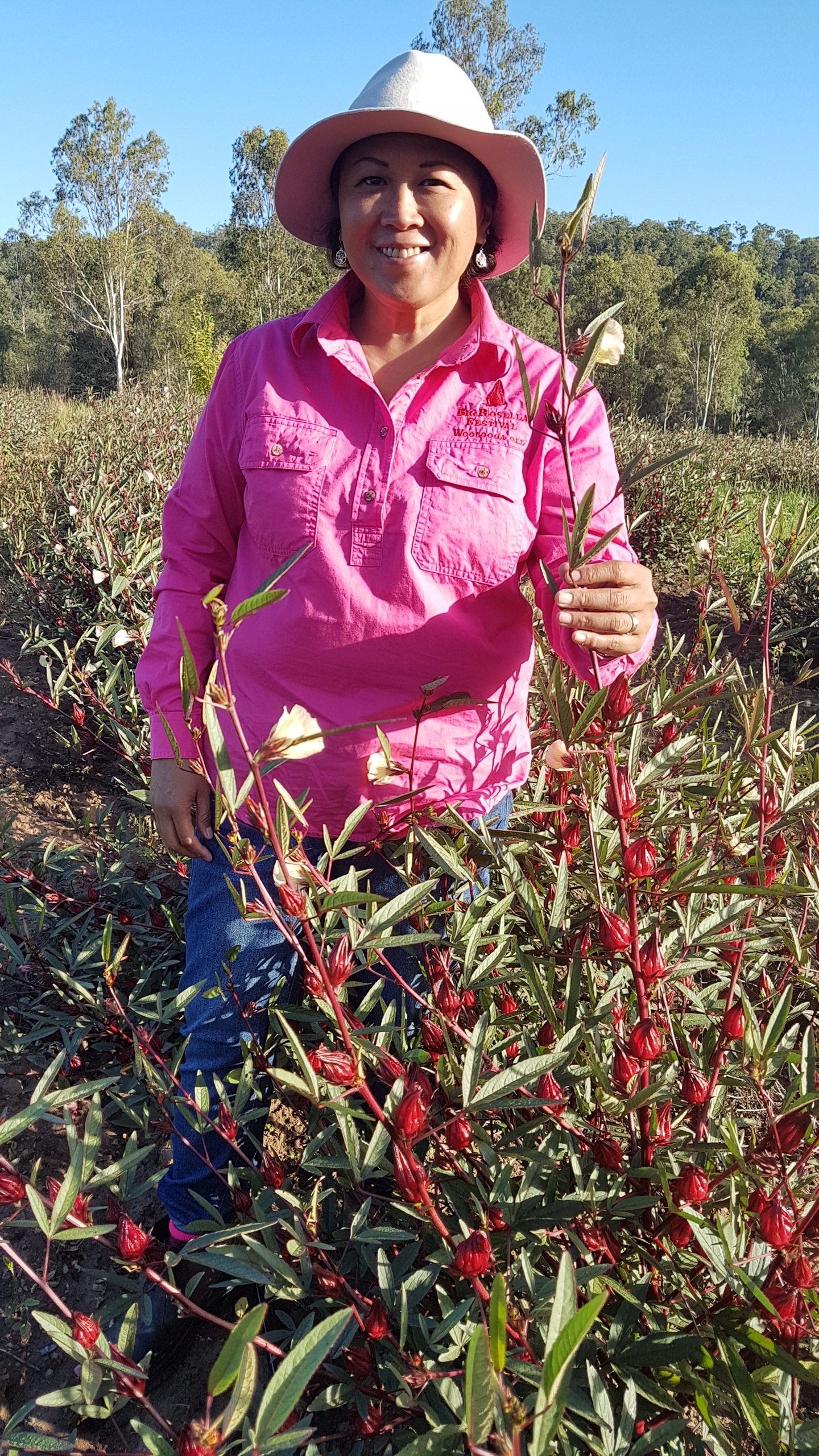
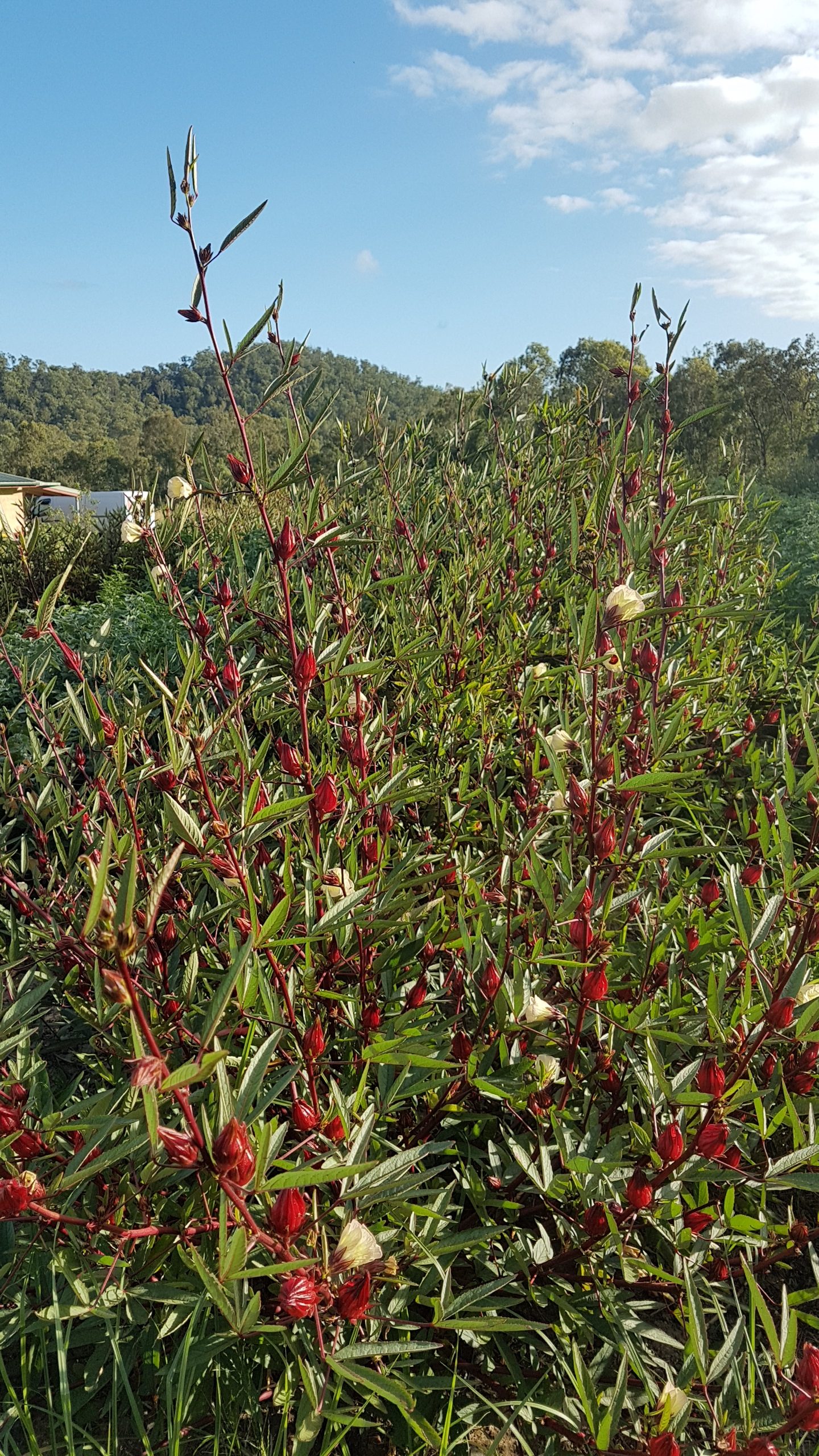
Cooking up a storm
Before meeting Greg, CC was a real estate agent and prior to that, she worked in the finance industry. However, it was a passion for cooking that led CC to establish her own business in early 2011.
CC’s previous career and her accounting degree have certainly helped to establish her business. Nowadays, her responsibilities include sales, bookkeeping, marketing, create new recipes, liaising with suppliers and customers as well as managing CC’s Kitchen and Petersen’s Farm social media pages.
“I think (my previous career) has been preparing me for what I’m doing now. In the bank, I learnt how to deal with people and a bit of the accounting side,” CC explains.
“In real estate, I learnt to knock on doors; I learnt how to negotiate with people buying and selling their houses. And everything about marketing – what attracts people; how and where to market; and how to talk to people in a way that they will listen to you.”
CC’s rosella products have attracted interest from a wide range of people, including the culinary industry. Celebrity chef Matt Golinski has featured CC’s rosella sauce and chutney in his recipes, while chefs, restaurants and shops around Australia also purchase products from the CC’s Kitchen range. Rosellas are available to jam makers across Australia and there are 30 outlets in Queensland that stock CC’s Kitchen products.
CC also spends time travelling to festivals around the state, showcasing her products to consumers and the wider food industry. On Sunday 5 May, Petersen’s Farm will take centre stage with the fourth annual Big Rosella Festival to be held, featuring live cooking demonstrations, hot food stalls, farm tours and fresh produce for sale.
“We like to show people what we do; our way of living. We welcome them to our lives for a day to say this is how we work, and this is how we survive,” CC says.
“The farm tour is the most popular event, and we tell attendees how rosella is grown, how it’s picked, what happens from the picking stage to the making of the rosella jam – it’s pretty much showing them the whole cycle.”
"What I enjoy most about this business is the leadership and giving opportunities to my peers and teammates; to see them blossom and take on challenges."
Overcoming challenges
Like most growers, Petersen’s Farm routinely addresses issues such as labour and the difficulty in sourcing extra hands to assist in the field.
“Rosellas must be hand grown and handpicked; they’ve got to be hand shelled and making the jam it’s not as easy as lumping it into one pot. There’s a process,” CC explains.
“We call it a labour of love!”
To meet demand, CC and Greg venture into the field and pick themselves, while other workers on the farm gain more working hours during the six-month rosella season. Plus, CC and Greg receive help from workers in the region. Schoolchildren are also brought in to work on weekends, giving them valuable horticultural experience and pocket money.
“We rely on locals. Unfortunately, we don’t have enough work to get backpackers because we don’t pick every day,” CC explains.
Cash flow is also a challenge at times, especially when the business is looking to expand its cooking capabilities.
“We want to grow more; we want to build a bigger kitchen and then we can take our business to the next level,” CC says.
“You have to get enough money for labour, pay the bills and to look after the crop, while in the meantime you have to look after your other crops too. Finance is always hard, but we seem to pull through it by having our value-adding business – these days CC’s Kitchen generates the main income. The best thing about it is that rain, hail or shine, production continues on.”
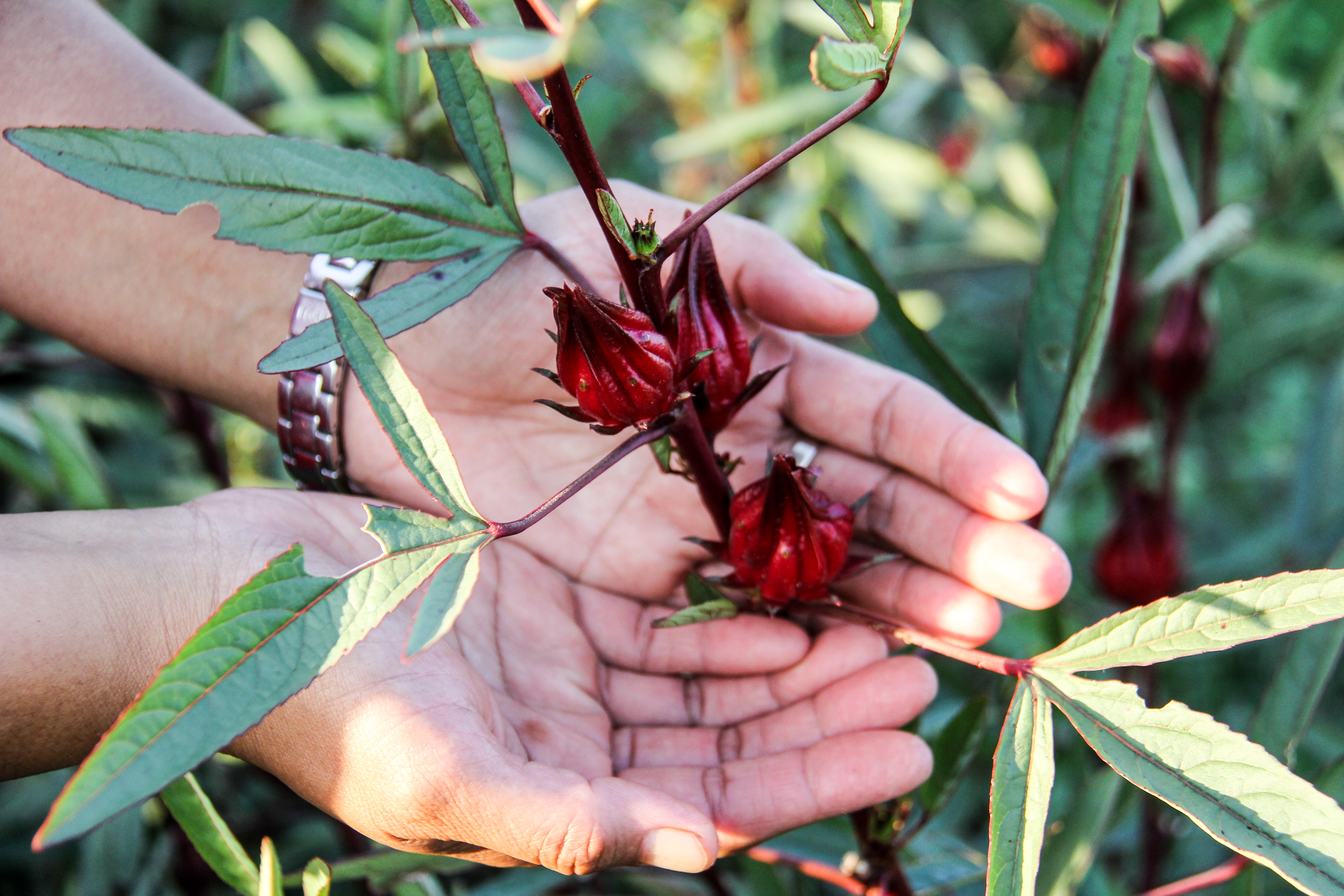
A bright future
CC is optimistic about the future of both her business and farming in Australia. She has big plans to expand CC’s Kitchen, and at the top of the agenda is opening a café. This will be a place to educate consumers about where their food comes from, and how to prepare and cook it.
“The challenges that we face provide real opportunities to connect with people and ask: what’s going to happen to this world if there are no farmers? Who’s going to provide food to the people?
“There’s all this technology and innovation, and I think we’ve got to be innovative as farmers. That’s very exciting for myself and my husband, because we know there’s a future for us to grow and to continue doing what we love – farming and cooking.
“We combine the farmer and cook story – and it’s just so doable. Being in horticulture, it means we have an opportunity to engage with different people through social media as well. That’s very powerful.”
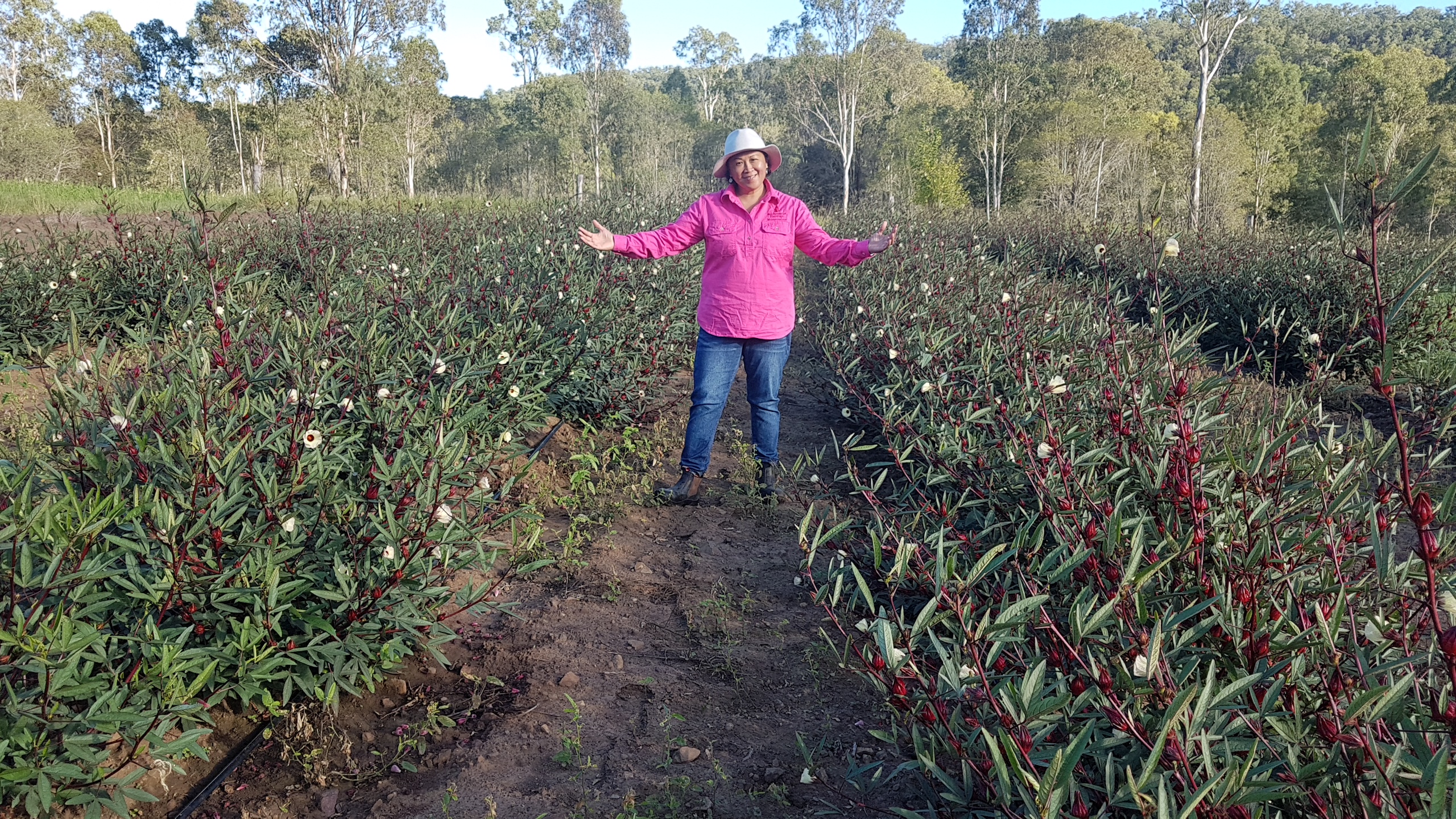
This grower profile first appeared in the leading magazine for the Australian vegetable industry, Vegetables Australia. If you’d like to subscribe to receive a new edition of Vegetables Australia in your mailbox every two months, use our online subscription form!

